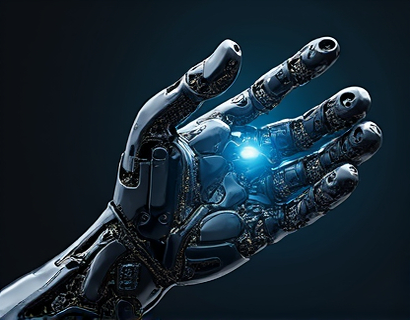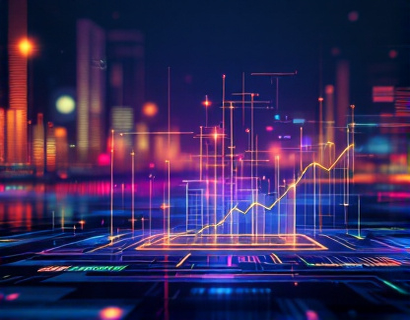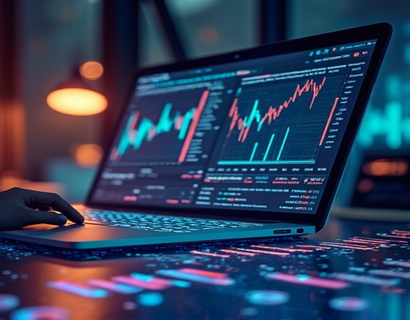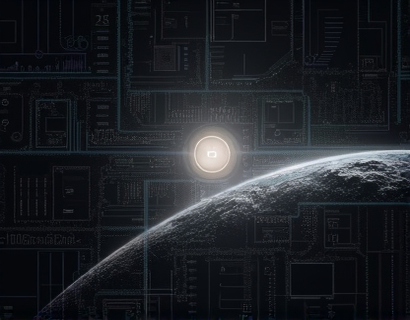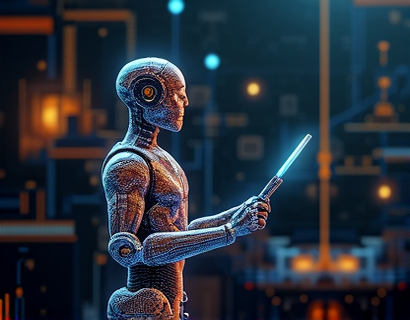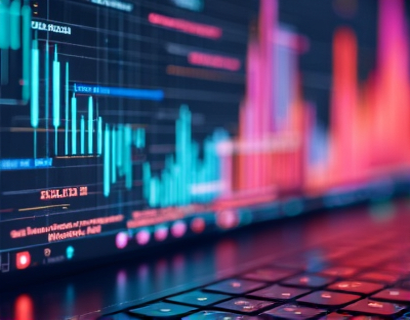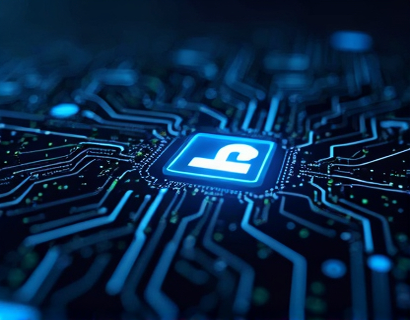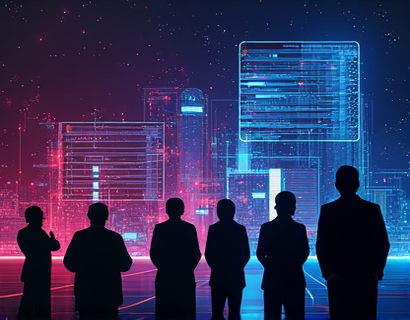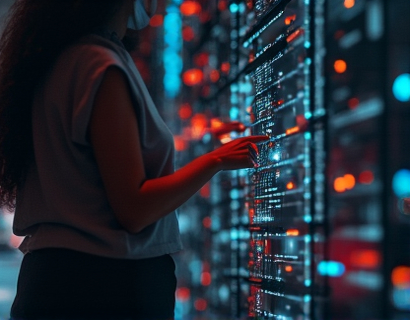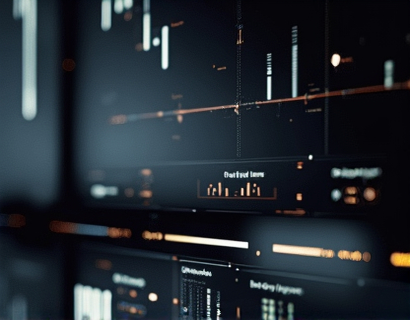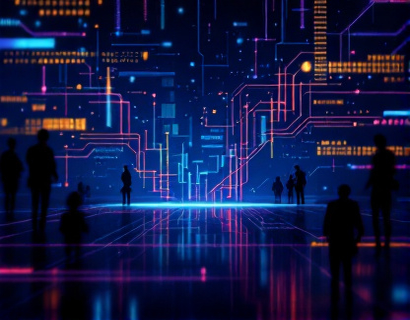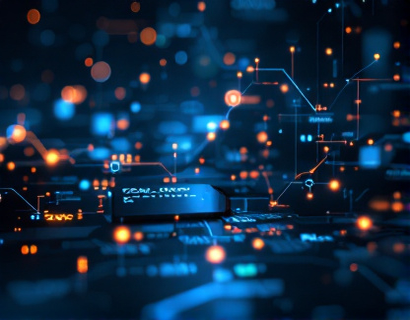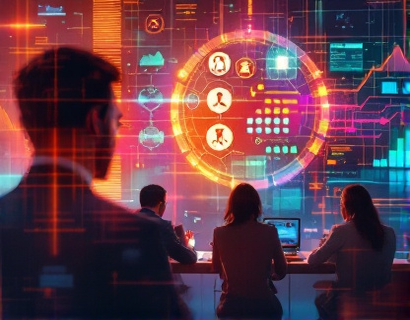Harnessing the Synergy of Crypto and AI for Next-Gen Digital Transformation
The intersection of blockchain technology and artificial intelligence (AI) is giving birth to a new era of digital transformation. This synergy is not just about combining two powerful technologies but about creating a unified ecosystem that redefines how we interact, transact, and engage in the digital world. For tech innovators and early adopters, understanding this convergence is crucial to unlocking new dimensions of growth and engagement.
The integration of blockchain and AI offers a robust framework for building secure, transparent, and intelligent digital solutions. Blockchain's inherent properties of decentralization, immutability, and transparency complement AI's capabilities in data analysis, pattern recognition, and autonomous decision-making. Together, they pave the way for innovative applications that can significantly enhance app and service experiences, driving substantial growth in the digital landscape.
Enhancing Security and Trust
One of the most significant advantages of combining blockchain and AI is the enhancement of security and trust in digital interactions. Blockchain provides a tamper-proof ledger that ensures data integrity and authenticity, while AI can detect and mitigate potential security threats in real-time. This dual-layer approach creates a highly secure environment for users, fostering trust and encouraging broader adoption of digital solutions.
For instance, AI-driven security systems can monitor blockchain networks for anomalous activities, such as unusual transaction patterns or potential smart contract vulnerabilities. By leveraging machine learning algorithms, these systems can adapt and improve over time, providing a dynamic and robust defense mechanism. This synergy not only protects user data but also ensures the reliability and consistency of digital services.
Optimizing Data Management and Analytics
AI's strength lies in its ability to process and analyze vast amounts of data quickly and accurately. When integrated with blockchain, this capability is further amplified. Blockchain provides a decentralized and secure repository for data, ensuring that the information used by AI algorithms is both reliable and tamper-evident. This combination enables more accurate and insightful data analytics, leading to better decision-making and personalized user experiences.
For example, in the finance sector, AI can analyze transaction data stored on a blockchain to identify trends, predict market movements, and optimize investment strategies. The transparency of blockchain ensures that all data is verifiable, reducing the risk of fraud and enhancing the overall efficiency of financial operations. This level of data integrity and accessibility is transformative for industries that rely heavily on data-driven insights.
Improving User Experience through Personalization
Personalization is a key driver of user engagement and satisfaction in the digital world. AI algorithms can analyze user behavior and preferences to deliver tailored content, recommendations, and services. When combined with blockchain, this personalization can be taken to the next level by ensuring that user data is securely and privately managed.
Blockchain-based identity verification systems, powered by AI, can create secure and seamless user authentication processes. This not only enhances the user experience by reducing friction but also empowers users to have greater control over their personal data. Users can choose what information to share and with whom, all while maintaining a high level of security and privacy.
In the context of e-commerce, for instance, AI-driven recommendation engines can suggest products based on a user's browsing and purchase history, stored securely on a blockchain. This ensures that the recommendations are both relevant and trustworthy, leading to higher customer satisfaction and increased sales.
Fostering Decentralized Applications and Services
The convergence of blockchain and AI is particularly potent in the development of decentralized applications (dApps) and services. dApps leverage blockchain's decentralized architecture to create applications that are resistant to censorship and control by any single entity. AI enhances these applications by providing intelligent and adaptive functionalities.
For example, decentralized finance (DeFi) platforms can use AI to automate complex financial operations, such as lending, borrowing, and trading, with minimal human intervention. Smart contracts, executed on a blockchain, ensure that transactions are transparent and enforceable, while AI algorithms optimize the underlying processes for efficiency and security. This combination not only reduces costs but also increases accessibility, allowing a broader range of users to participate in financial markets.
In the realm of supply chain management, AI-powered dApps can track and verify the authenticity and origin of products in real-time. Blockchain ensures that all data is immutable and transparent, while AI algorithms can predict and optimize logistics, reducing delays and costs. This level of transparency and efficiency is transformative for businesses and consumers alike.
Enhancing Content Creation and Distribution
The media and entertainment industries stand to benefit significantly from the integration of blockchain and AI. Content creation and distribution can be made more efficient, secure, and rewarding for creators through this synergy.
AI can assist in content creation by generating high-quality content, such as articles, music, and even visual art, based on user preferences and trends. Blockchain ensures that creators are fairly compensated for their work, with transparent and traceable royalty payments. Smart contracts can automate the distribution and monetization of content, eliminating intermediaries and ensuring that creators receive their due.
For instance, a decentralized content platform can use AI to curate and recommend content to users based on their interests, while blockchain ensures that content creators are paid automatically and transparently. This not only enhances the user experience by providing relevant and high-quality content but also supports creators by ensuring they are fairly rewarded for their work.
Building Sustainable and Resilient Ecosystems
The integration of blockchain and AI contributes to the development of sustainable and resilient digital ecosystems. By decentralizing control and leveraging AI for optimization, these ecosystems can operate more efficiently and with a lower environmental impact.
Blockchain's decentralized nature reduces the reliance on centralized servers, which are energy-intensive and vulnerable to single points of failure. AI can optimize resource usage across the network, ensuring that computational tasks are performed efficiently and sustainably. This combination not only reduces the carbon footprint of digital operations but also enhances the overall resilience of the ecosystem.
In the context of IoT (Internet of Things), AI-powered devices can communicate and coordinate through a blockchain-based network, ensuring secure and efficient data exchange. This reduces the need for centralized data processing, lowering energy consumption and enhancing privacy. For example, in smart cities, AI can manage traffic flow, energy usage, and public services more effectively, all while maintaining the security and integrity of data through blockchain.
Challenges and Considerations
While the potential of blockchain and AI is immense, there are several challenges and considerations that must be addressed. Scalability remains a significant issue for blockchain technology, as many networks struggle to handle high transaction volumes efficiently. However, ongoing research and development are addressing these challenges, with solutions like sharding and layer 2 protocols showing promise.
Another consideration is the regulatory landscape. The intersection of blockchain and AI operates in a relatively uncharted territory, and regulatory frameworks are still evolving. It is essential for innovators and businesses to stay informed about regulatory changes and ensure compliance to avoid legal pitfalls.
Additionally, the ethical use of AI is a critical concern. Ensuring that AI algorithms are transparent, fair, and free from bias is paramount. Combining AI with blockchain can enhance accountability, as blockchain's transparency can help track and audit AI decision-making processes.
Conclusion
The integration of blockchain and AI represents a revolutionary force in the digital transformation landscape. By enhancing security, optimizing data management, personalizing user experiences, fostering decentralized applications, and building sustainable ecosystems, this synergy offers unprecedented opportunities for growth and engagement. For tech innovators and early adopters, embracing this convergence is essential to stay at the forefront of the digital revolution. As the technologies continue to evolve, the potential for innovation and impact will only grow, paving the way for a more secure, efficient, and inclusive digital future.




